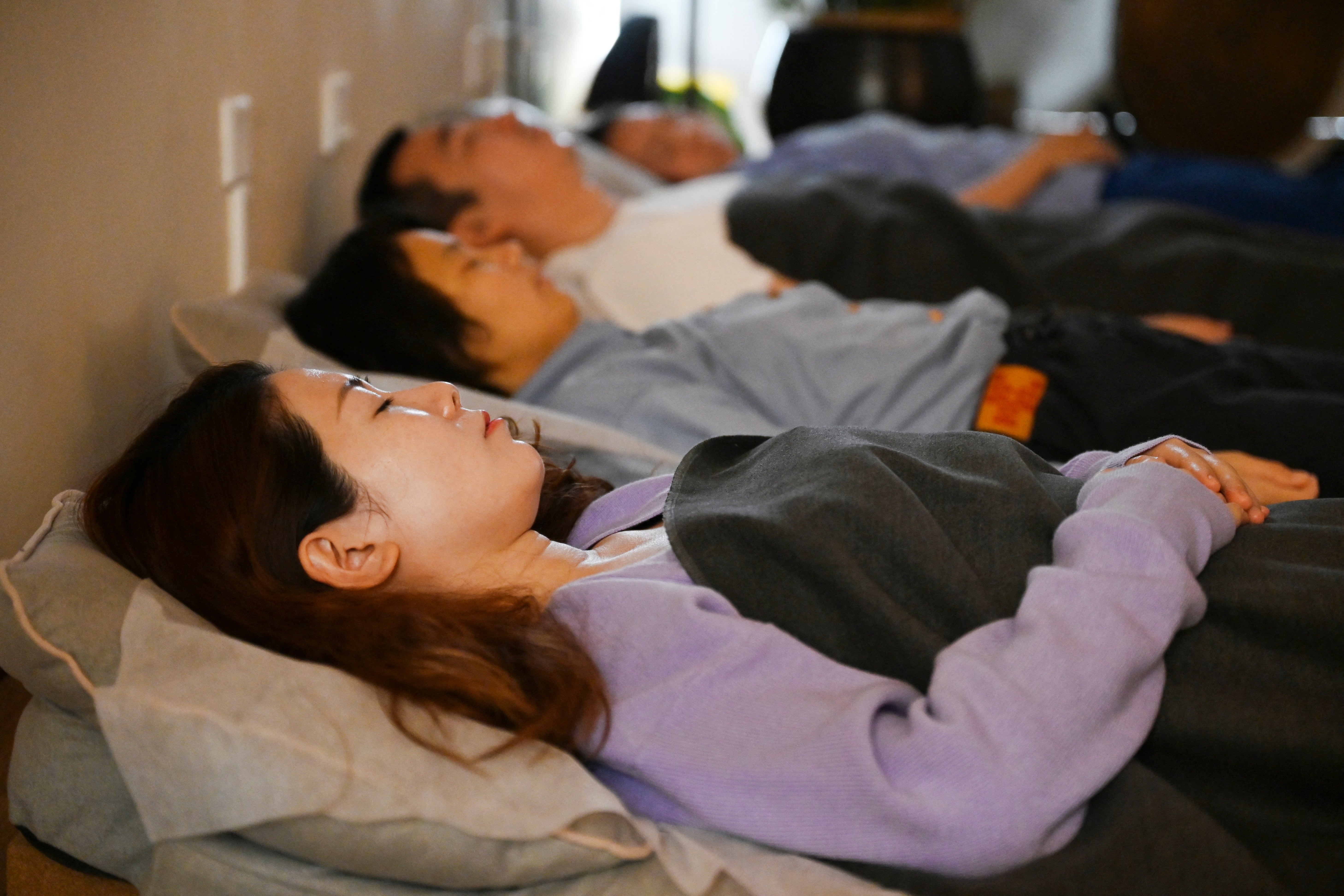Scientists have discovered a rare genetic mutation that lets some people thrive with just four hours of daily slumber, an advance that could lead to new therapies to induce better sleep and rest.
Doctors recommend at least seven to nine hours of bedtime each night, with sleep deprivation linked to early onset of conditions like Alzheimer’s and heart disease.
However, people with this rare mutation tend to feel fully rested after only four to six hours of sleep each night, without showing any of the adverse effects linked to chronic sleep loss.
Such people have less need for sleep, as measured using the low-frequency Delta brain waves on EEG scans, and may also feel “worse” if they sleep more, say researchers from the Chinese Academy of Sciences.

Until now, four genes have been linked to such a natural short sleep, or NSS, in people.
Previous studies have revealed that a phosphate molecule exchange process at the junction of two connecting nerve cells plays a critical role in the sleep-wake cycle.
Researchers have now found that a mutation in people with NSS, within the gene salt-induced kinase 3 (SIK3), also plays a key role in human sleep duration.
A mutation called N783Y was found to alter the SIK3 protein’s structure, hindering its ability to engage in the phosphate molecule transfer process.
In this mutation, the asparagine (N) amino acid in the SIK3 protein’s 783rd protein building block position is replaced by the molecule tyrosine (Y).
When scientists created mice with this N783Y mutation, the mutant mice were found to sleep an average of 30 minutes less each night, compared with unaltered mice.
Further analysis confirmed that the mutation caused structural changes affecting the protein’s ability to transfer key phosphate molecules to other proteins.
The mutation did not seem to affect the levels of proteins in the mice, indicating that the sleep duration changes are linked to altered SIK3 activity and not to protein quantity within the rodents.
It also led to a slight increase in EEG delta power, indicating that people with the mutation experience more deep sleep.
With the study, scientists have confirmed the critical role played by the SIK3 gene in regulating human sleep duration, indicating it could be a promising target for sleep drugs.
They hope to conduct further studies to gain more insight into how some enzymes linked to the process regulate sleep.
The research may lead to potential new drug targets to improve sleep, researchers say.
“These findings advance our understanding of the genetic underpinnings of sleep,” scientists wrote, adding that it provides “further support for potential therapeutic strategies to enhance sleep efficiency”.




